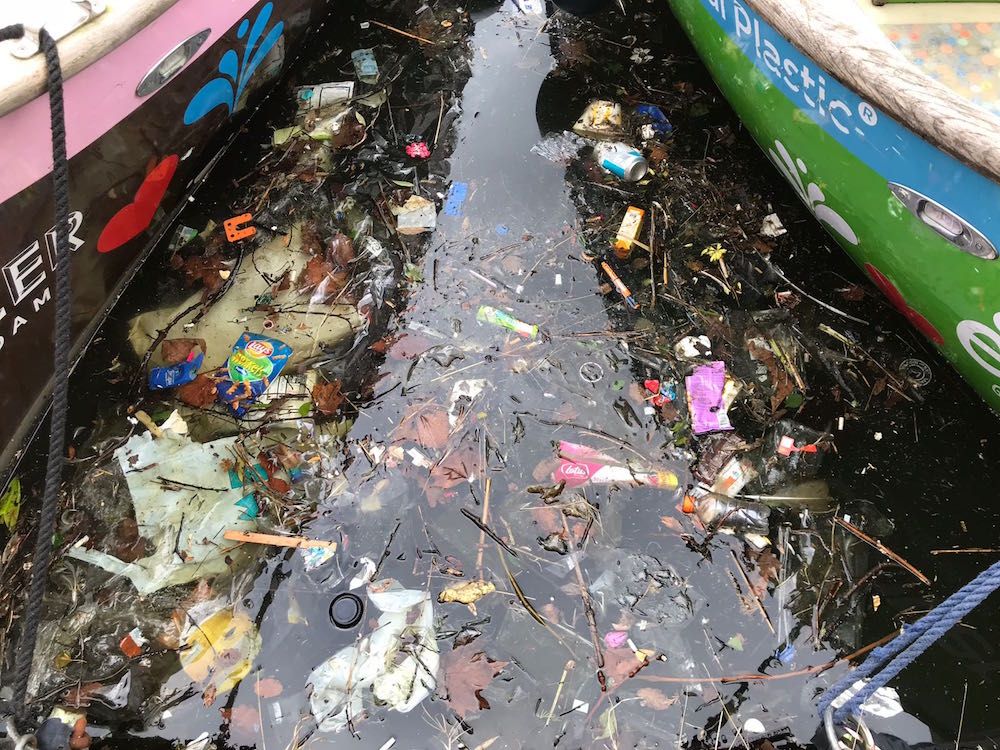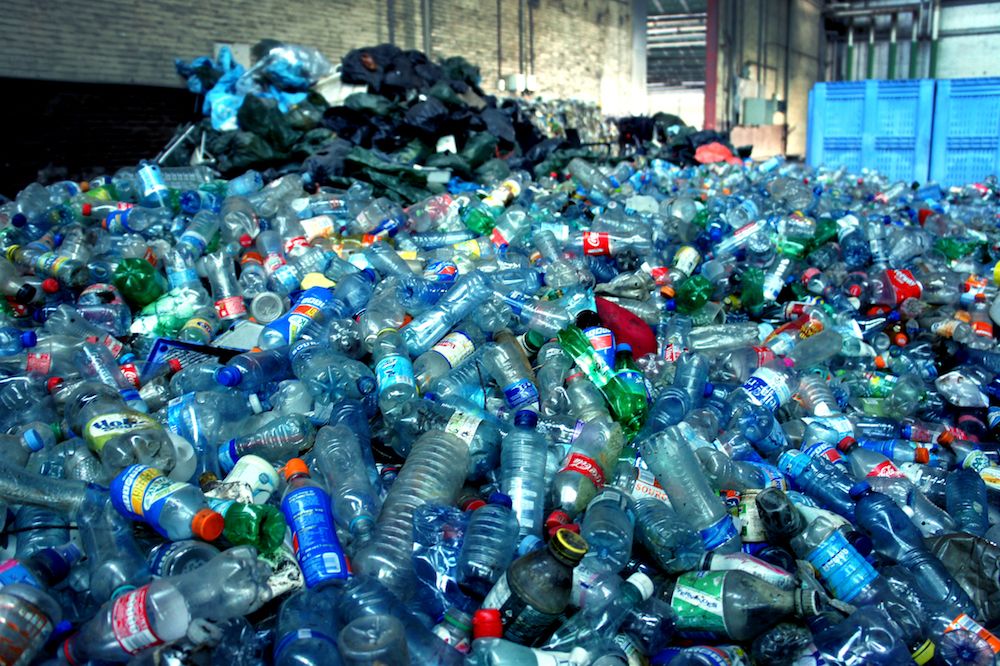Fishing for Plastic Is the Latest Way to Clean Up Amsterdam’s Canals
Plastic Whale offers visitors an opportunity to see the city by boat while also cleaning up its waterways
:focal(428x371:429x372)/https://tf-cmsv2-smithsonianmag-media.s3.amazonaws.com/filer/6f/ce/6fce1679-6b00-4a99-b3ed-88aaeca3a980/__twycer_in_credits__plastic_fishing.jpg)
Fifteen years ago, Marius Smit had an idea that was so outlandish he called it his personal “man on the moon” mission: What if he collected plastic waste polluting the canals running through Amsterdam, Netherlands, recycled it and used the materials to build a boat? After years of plotting and planning, Smit eventually made his idea a reality and now has a fleet of nine boats navigating the waterways of Amsterdam, along with two boats in Rotterdam, a city located 50 miles to the south. And he’s only getting started.
Smit first came up with the idea for Plastic Whale during a visit to Borneo. After a storm pummeled the island, the beach where he was staying became flooded with plastic, resulting in what is known as “plastic soup,” a toxic blend of plastics in various stages of decomposition ranging from full bottles to microscopic fragments created by years of exposure to sunlight and waves.
“That opened my eyes,” Smit tells Smithsonian.com. “I wanted to do something [to help fix] the problem of plastic pollution, but when I came back home to Amsterdam, I didn’t know how to [get my idea off the ground]."
With a background in advertising, Smit did what he does best: He shared his idea with anyone who would listen. Pretty soon, other professionals around Holland began reaching out and asking him how they could get involved. Without having any previous experience in boating or recycling, he was grateful for the help.
“My project exploded, and within a few weeks of traveling around Holland, people wanted to help me by offering up their own expertise, from lawyers to accountants to recycling companies to boat builders, you name it,” Smit says. “It was always my intention to create a company out of this, because then it’s self-sustaining, but I also wanted to create a network of civilians, companies and government institutions that would work together towards a concrete, positive outcome.”
To take his company from idea to reality, Smit borrowed some boats and invited friends to go plastic fishing on the canals of Amsterdam. Armed with traditional fishing nets and bags, volunteers scooped up everything from bottles to plastic bags. Word spread, and at the next event 450 people showed up ready to clean the waterways. The next time, that number tripled to 1,200 people aboard 72 borrowed boats. In 2013, Plastic Whale debuted its first boat made using recycled content collected by volunteers, bringing the project full circle.
Smit estimates that so far this year approximately 15,000 people have participated in the two-hour plastic fishing cruises with Plastic Whale. In addition to individuals (visitors can sign up through AirBnb), the cruises also prove popular with local schools and companies. This year, volunteers have fished out nearly 3,000 bags of waste from the canals and are on track to recycle more than 30,000 plastic bottles. (Waternet, a Netherlands-based water company, pulls an additional estimated 7,700 pounds of waste from the city's canals every day.) While much of the trash collected by Plastic Whale isn’t recyclable and goes directly to the dump (one of the more interesting finds was a sofa—don't ask), Smit and his team do recycle plastic water bottles made using Polyethylene terephthalate (PET), which they store inside sea containers they rent along the city’s western harbor. Then once a year the contents go to a local company that turns the plastic into granules that are then made into PET foam plates that become the core of Plastic Whale’s boats.
The annual plastic haul now outpaces the company's need for boats, so Smit started looking for new products to create. “We... started working with a company that turns the plastic bottles into fibers that are made into felt, which [a local furniture company called Vepa uses to make our] Plastic Whale Circular Furniture,” he says. “We started selling the furniture in February of this year.”
Smit says that plastic fishing has become so popular that each year he has expanded the season, even taking people out on the boats during the chilly winter months. But even so, he says more can be done to educate the public about plastic pollution.
“The world’s waters are increasingly being polluted by plastic waste,” he says. “Plastic is a beautiful material, and you can create a lot with it, but it doesn’t go away. Every single day tons and tons of plastic waste enter our world’s waters. People need to be aware of the fact that there is a problem and a need to reduce our usage of plastics. It all starts with awareness.”
/https://tf-cmsv2-smithsonianmag-media.s3.amazonaws.com/filer/06/49/064902f2-c071-41b3-b5aa-430cf4e1d49a/_dsc7196b.jpg)
/https://tf-cmsv2-smithsonianmag-media.s3.amazonaws.com/filer/05/78/05784834-897d-4b11-9d26-a8b93f38a242/__twycer_in_credits__plastic_fishing_copy.jpg)
/https://tf-cmsv2-smithsonianmag-media.s3.amazonaws.com/filer/c0/cd/c0cd03f9-5395-4531-8c5e-a36620178074/plastic_fishing.jpg)


/https://tf-cmsv2-smithsonianmag-media.s3.amazonaws.com/filer/ff/46/ff46ba6d-e40b-4a35-8cff-c197b8b53a33/pride_plastic_fishing_copy.jpg)
/https://tf-cmsv2-smithsonianmag-media.s3.amazonaws.com/filer/fc/82/fc82fc67-8d22-4e8b-9f3c-de30c8036234/pride_plastic_fishing.jpg)